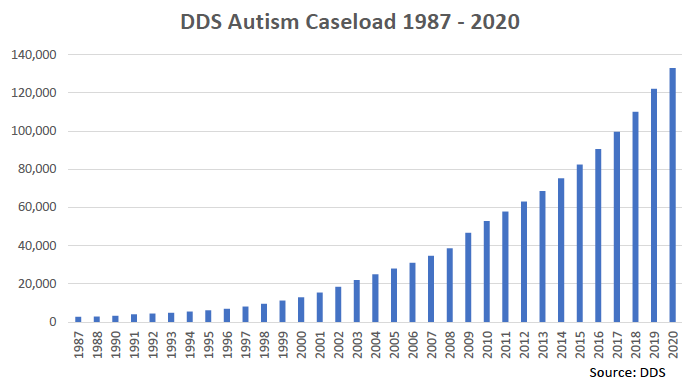A sister discusses picking your battles and finding creative solutions
By Veronica Zielinski
The thing that has helped my 21 year-old brother the most is rethinking how things “should” happen.
Every morning was a struggle as we tried to get him dressed and out the door. One day (at the onset of puberty, when his behaviors peaked), we realized that pajamas are a made-up rule. Frank didn’t have to take a bath in the evening, struggle with us to get a pajama set on, and wake up in the morning to struggle into another new set of clothes. Why not give him his beloved evening bubble bath and then dress him in the comfy athletic pants and T-shirts he wears everyday? He’s a little wrinkled in the morning, but that’s a small price to pay for less stressful mornings and fewer behaviors.
Frank also hates putting shoes on. We have tried every style, every brand, every color. No dice. Now, we can make it work in spring and summer, but during Cleveland winters...he’s gotta wear something. I bought slip-on water shoes with rubber soles and put memory foam inside. He thinks they’re comfy socks. And they offer at least a little more protection against rain or rocks or whatever may cross his path. And I’m not afraid of scooping him up like a baby and carrying him across rough terrain. The bright side of “failure to thrive” is that I can still lift him at age 21 since he weighs all of 90 pounds.
But the biggest behavior trigger by far is diaper changing.
Frank has been in diapers his whole life and probably will continue to be. He hates getting changed but he also is very susceptible to diaper rash, which obviously is uncomfortable and triggers—you guessed it— more behaviors. How we get through that is the age-old art of distraction. We don’t change Frank in the bathroom. He doesn’t sit on the toilet or lay on a changing mat, and hasn’t sone so since about age 4. The kid actually never stops moving...it’s part stim, part de-escalation. He is constantly on his feet and wandering around. So...we change Frank exactly where he happens to be at that moment—standing at the kitchen counter (where he also eats his meals, because, remember, he won’t sit, kneeling in front of his CD player, or pacing in front of the window (for that one we just pray that the neighbors aren’t home.) We change him standing up in a span of about seven seconds because any longer than that will get us a swat on the head. If there was a autism talent competition I would absolutely win “best diaper change while standing and moving on a 21-year-old man who is as tall as me.” Is it appropriate or hygienic or the ‘right way’? No, but it gets us through with minimal blood and tears and that’s a win in my book.
In addition to the rarity of standing or sitting or laying in one place unless he is asleep, Frank also won’t let us brush his teeth while he’s awake. Ditto with nail cutting, shaving, and haircutting. So...I wait for him to go to bed, enter a REM cycle, and then I sneak into his room with a toothbrush and scissors and any other equipment needed. Is it ideal? No. Does he swallow the pea-sized amount of toothpaste that you’re supposed to spit out? Yes. Is his pillowcase slightly damp and minty-fresh? You bet! But before we tried this middle-of-the-night oral hygiene, he went months without brushing. Gross, I know. That coupled with seizure meds that are infamously cruel to the gums gave us a lot of hassles over the years. With nighttime brushing, Frank has had a perfect smile for almost 2 years now! And he has a fresh haircut and shave anytime he spend the night laying in an ideal position.
Where do we do all that nocturnal grooming? Well, it’s not in Frank’s bedroom. Many years ago Frank realized that his twin-size bed was not the best bed in the house. The best one was a king size memory-foam mattress that happened to be in the master bedroom. So Frank began to detour on the way to his room and crawl into the master bedroom to sleep in the best bed. He also found that sleeping in the square middle of the mattress, stretched out in all directions, means that he got to sleep all by himself! So that’s why everyone else sleeps in the tiny surrounding rooms and Frank uses the master suite. It’s rather indicative of who runs the household, honestly.
I guess the moral of our story is...do what you gotta do! Think outside the box. If you’re struggling over something with your kid, think “why do they need this? Can we skip it? If not, how can we make it more comfortable for them?” It’s helped us realize that there are lots of ways to accomplish the everyday battle called life.
Veronica Zielinski is the sister of a young man with autism. She lives in Cleveland, Ohio.
Disclaimer: Blogposts on the NCSA blog represent the opinions of the individual authors and not necessarily the views or positions of the NCSA or its board of directors.












